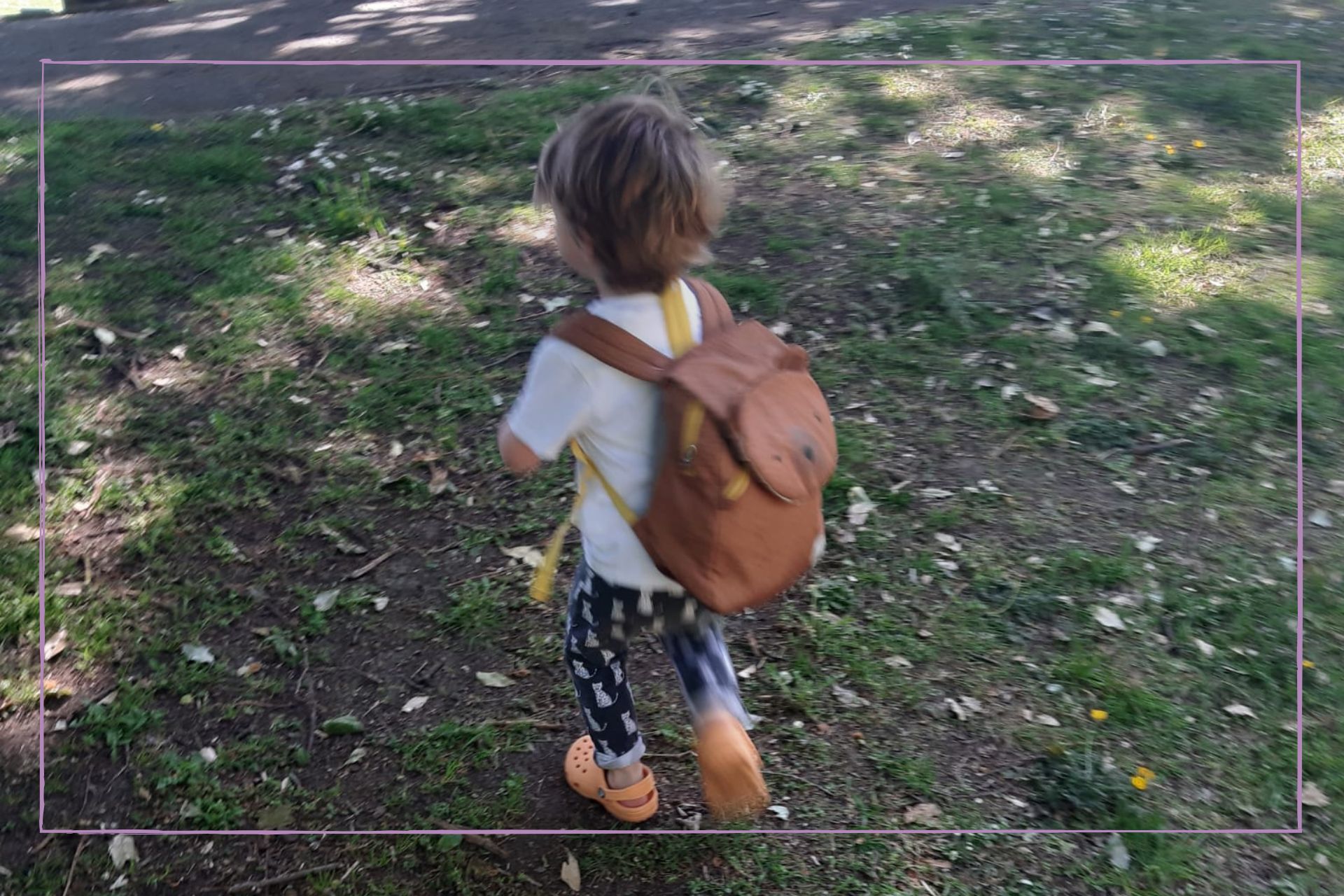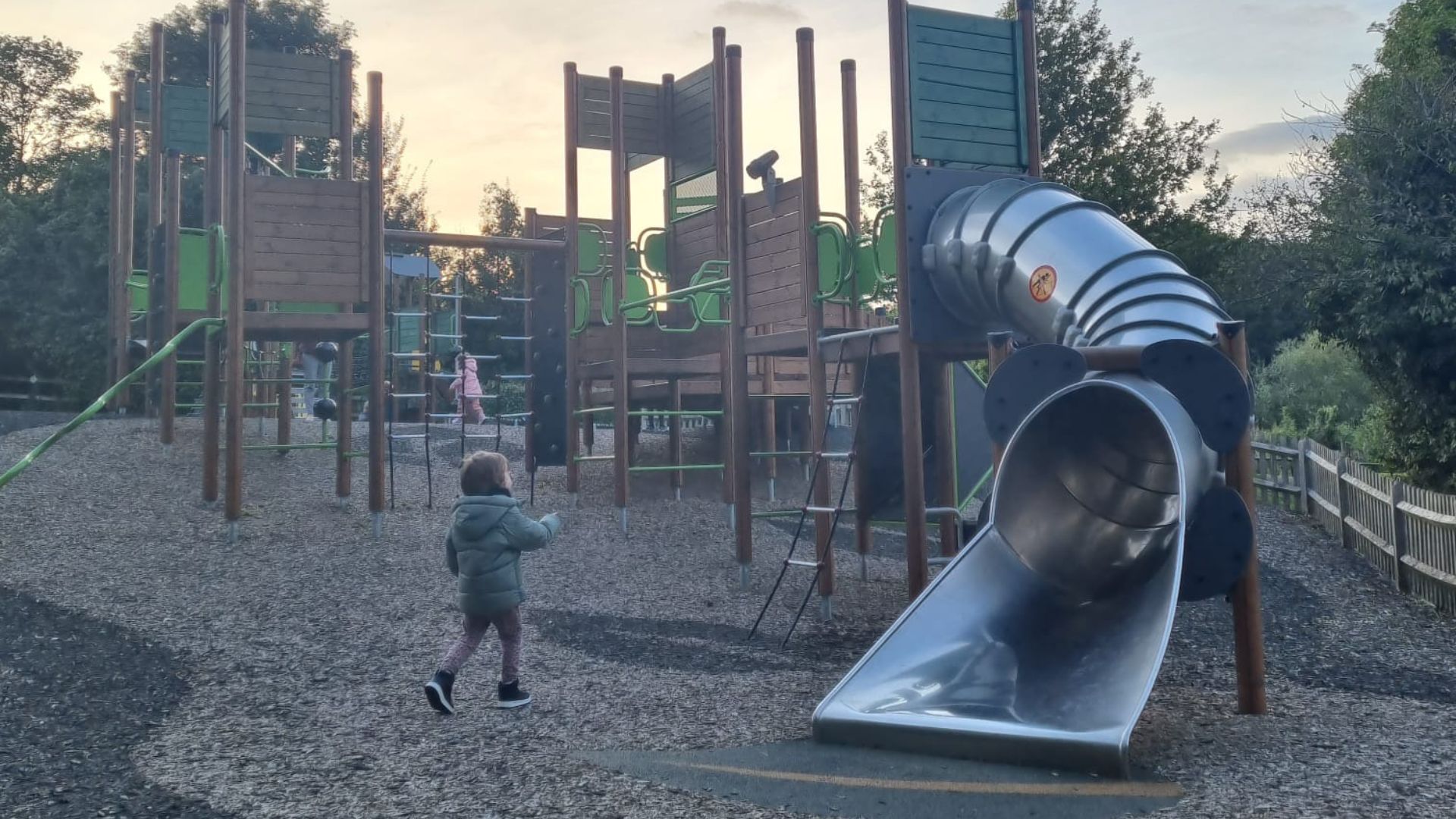Kids get more than 65 days off a year, so ALL my annual leave goes on childcare - where's my holiday?
Approximately 65 days off a year, not including inset days or sick days...

Did you know that the average child in a UK comprehensive school gets about 65 days off from school? The average working parent gets 25 days annual leave. Please, someone, make it make sense.
Being a parent means weighing everything up - the best school shoes, how to reduce childcare costs, and wondering whether it was financially worth returning to work after a baby. But, we are where we are... And, it's because of this 65 vs 25 formula that I have to use up all of my annual leave on child care, leaving none for, well… me. Or, say, a family holiday where my husband and I might get some time off in the same week.
According to Expatcia, kids get 65 days off - so sorting childcare for every school holiday is a military operation. It involves Excel sheets, highlighters, wall planners, calendars, and Nan and Grandad on speed dial (sorry Mum). Is it just me, or do any other parents resent using all annual leave to parent? Yes, I know, I chose to have kids. But this annual leave came into play when men worked 9-5 jobs and women stayed home.
Is it just me, or do any other parents resent using all annual leave to parent? Yes, I know, I chose to have kids. But annual leave made more sense when one person stayed home (read: the mother) and entertained the kids, kept on top of dentist appointments, school comms, bathroom cleaning, clothes audits, food shops, birthday remembering, gift buying, menu making, and meal serving. Now both parents work, but all that family and house stuff? Yeah, that still needs doing.
In the past, 25 days for one person seemed enough, because ‘the childcare juggle’ was less of an issue. But, despite the huge advances society has made in working rights for women (and I'm grateful, I really am), nothing has evolved with it - the school day and holidays work for families where one person is at home full time, and not to sound like a whinger, but it’s not fair.
I want, no I need some days off for me, to stare at a wall in silence, drop off the three bags to charity that have been in my car boot for the last three months, get the Christmas decs up in the loft before December starts again, sort out which clothes no longer fit my kid - y'know the fun stuff(!)
The 65 days that kids have off are a hefty mix of half terms and school holidays, inset days, teacher training days, and the regular ‘half days the Friday before the holidays’. And of course that’s not counting all the ‘come into school’ mornings and afternoons to do phonics or watch plays. The school day takes a lot of time from the workday, and I stopped going to school over 20 years ago.
GoodtoKnow Newsletter
Parenting advice, hot topics, best buys and family finance tips delivered straight to your inbox.
As one Instagrammer put it when she worked out the formula, 'What the f**k?'. Mum Shiv on @upallnight_blog shares this amazing visual of parenting, schooling, and working and why the math don't math. *Warning* Swearing in the Instagram video.
A post shared by SHIVS✌🏻💛 (@upallnight_blog)
A photo posted by on
As any parent can attest, the school holidays are an epic marathon, a whirlwind of energy and excitement that can put even the most seasoned parent to sleep. One might wonder, what on Earth fills those 75 days? The answer is a kaleidoscope of activities, that require time, patience, and a limitless supply of snacks. There are museum visits that transform into treasure hunts, and playground escapades that demand refereeing skills. There are arts and crafts, outdoor adventures, and educational quests that leave us all exhausted.
But why, you might ask, does this time demand such a significant portion of my annual leave? Surely there are alternative arrangements? Well yeah there are, and we have to use them whether we want to or not because The Formula does not work.

And this outsourcing of care costs money and will flood you with parenting guilt for being absent, especially as you only get 18 summers with your kids, apparently. A narrative that can, in my opinion, get in the sea.
In an ideal world, perhaps we could craft a utopian system of support where every caregiver gets an equal share of the load and companies open their eyes to the fact that both parents tend to work full-time, a whopping 73% to be exact according to this Government 2019 study. And stop expecting employees to work like they don’t have kids and a life. Needless to say, we’re not quite there yet.
My annual leave becomes my lifeline, my passport to a world where playgrounds are castles, picnics are feasts, and every question starts with ‘mummy’ on a loop. So here I am, embracing the complexities and contradictions of modern parenthood, dedicating my annual leave to a cause that is both rewarding and relentless. I am not alone in this journey; countless parents across the globe embark on their own versions of the same quest. We swap stories, share laughs, and find comfort in knowing that we're all trying to figure it out, one school holiday at a time.
So, here's to the 25 days of annual leave spent on childcare throughout school holidays. Godspeed to all parents and carers surviving it.
If you're feeling this same pinch of summer holidays check out our piece on what is wrap around care, and if that doesn't help we've also found the best kids movies on Netflix and Things to do with kids: 72 activities.
Stephanie has been a journalist since 2008, she is a true dynamo in the world of women's lifestyle and family content. From child development and psychology to delicious recipes, interior inspiration, and fun-packed kids' activities, she covers it all with flair. Whether it's the emotional journey of matrescence, the mental juggling act of being the default parent, or breaking the cycle of parenting patterns, Stephanie knows it inside out backed by her studies in child psychology. Stephanie lives in Kent with her husband and son, Ted. Just keeping on top of school emails/fundraisers/non-uniform days/packed lunches is her second full-time job.